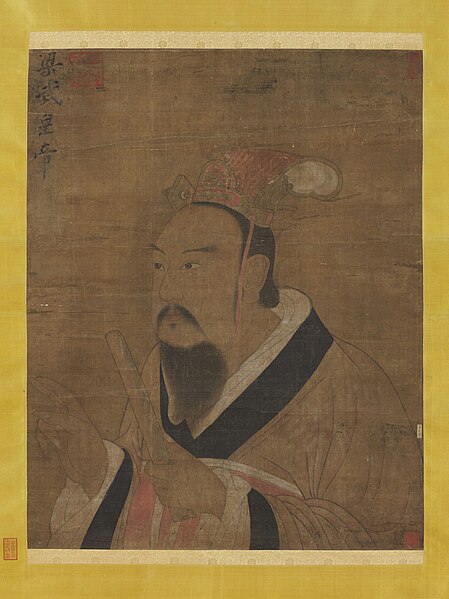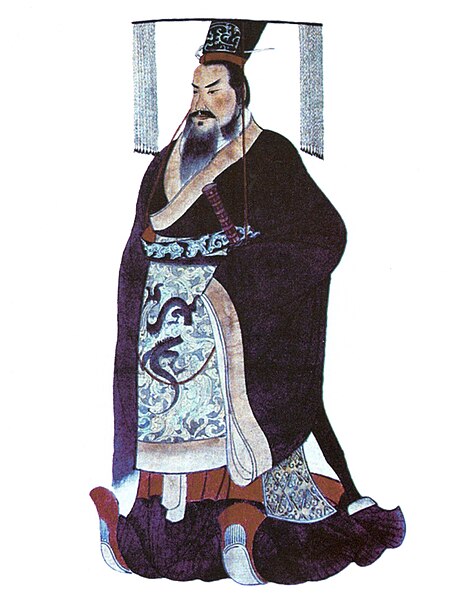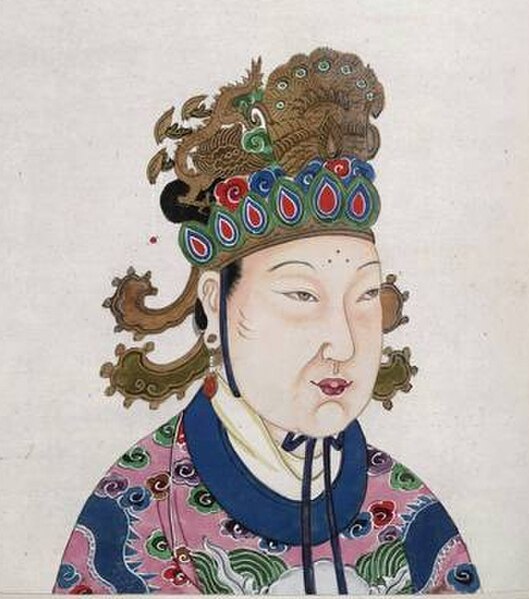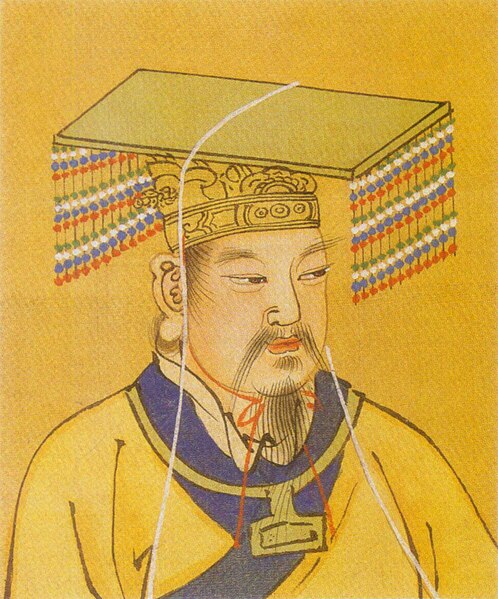Emperor Wu of Liang, personal name Xiao Yan (蕭衍), courtesy name Shuda (叔達), childhood name Lian'er (練兒), was the founding emperor of the Chinese Liang dynasty, during the Northern and Southern dynasties period. His reign, until its end, was one of the most stable and prosperous among the Southern dynasties. He came from the same Xiao clan of Lanling (蘭陵蕭氏) that ruled the preceding Southern Qi dynasty, but from a different branch.
Emperor Wu of Liang
Xiao Tong.
Wu in his late reign.
The tianlu for the imperial tomb of Xiao Yan
Throughout Chinese history, "Emperor" was the superlative title held by the monarchs who ruled various imperial dynasties. In traditional Chinese political theory, the emperor was the "Son of Heaven", an autocrat with the divine mandate right to rule all under Heaven. Emperors were worshiped posthumously under an imperial cult. The lineage of emperors descended from a paternal family line constituted a dynasty, and succession in most cases theoretically followed agnatic primogeniture.
Qin Shi Huang, the first emperor of China (r. 221–210 BC)
Qin Shi Huang escaping assassination (3rd century AD)
An 18th century depiction of Wu Zetian, the only female emperor of China
Yellow Emperor








